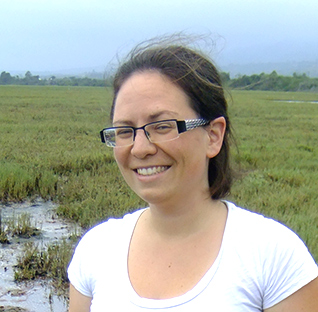In an earlier blog I chastised parents for taking advice from celebrities like Jim Carrey and Jenny McCarthy on important health topics. In the days since I wrote that blog I’ve been wondering about the scientist’s role as a public servant. Could the scientific community have done more to counter this misinformation, perhaps preventing the decrease in vaccine use that we’re currently witnessing?
I believe that the answer is yes, we could have done more. Vaccines aren’t the only area where greater scientist involvement could make a difference. I’m confident that just about every scientific subdiscipline has something important to offer the public.
So how do we get this information to the public? It won’t be easy, but I think we need to be proactive. We could contact newspapers, TV stations and radio stations, for starters. We could contact local high schools and offer to give special lectures to students during their scheduled science classes.
But the question remains, “Are we obligated to do anything?” It likely depends on which scientific position you hold, but the contracts that most of us have signed in no way state that we’re obligated to educate the public. That being said, I think it’s important to remember that taxpayers pay our bills. Whether you’re funded by NSF, NIH, the university or college that you work for or some other government agency, it’s likely that state and federal tax monies are going towards funding your projects and paying your bills.
Despite this, it is the case that what we’re actually being paid to do is to either teach courses or conduct research. Our bills are also being paid by the students sitting in the courses that we teach. In fact, in academia at least, too much public service could be detrimental to your career.
Why don’t scientists spend more time engaging the public?
The answer, in my mind, is because it’s often detrimental to our careers. It’ll probably take a lot of time and effort to really get the public’s attention (especially when we’re going up against celebrities) and many of us are in a system where we can’t afford to offer that kind of a time commitment.
If you’re a professor going up for tenure, then you’re going to be judged on a set of predetermined criteria. I have yet to go through the tenure process myself (I’m still a graduate student), but I believe I have a pretty good understanding of what the criteria are for achieving tenure. The tenure committee focuses on how many papers you’ve published and where you published them, how many courses you taught and how well you taught them, how capable you were at establishing your lab, and how much service you provided to the department and the institution as a whole.
If you’re going to excel in all of these areas in the space of 7 years, then just about any activity you engage in that isn’t focused on achieving these ends is going to set you back. I know people who have even put off having the children that they eventually want until after they’ve received tenure because they don’t even feel like they have time any spare time at all. During the years when you’re really getting into the groove of what kind of a scientist you’re going to be, you’re keenly aware that you don’t have time to spend communicating with the public. This is critical because, as far as I can tell, not making tenure is devastating to one’s career.
Once tenure has been reached, there is still no incentive to spend one’s time with the public. Professional scientific societies and the scientific community as a whole primarily praise and award achievements in research, not public education. So again, time spent communicating with the public is time that you’re taking away from advancing your career.
So what is the solution?
I don’t think that change is going to come without a push from research institutions and professional societies. For example, I think it would be absolutely fantastic if universities hired scientists who were paid to spend all of their time finding ways to communicate with the public. They should be required to stay on top of important public issues (swine flu, vaccines, etc.) and should then disseminate this information through public media as well as more direct avenues (public lectures, etc.).
Alternatively, universities could offer professors limited teaching loads for a semester every couple years in return for time spent educating more publicly. They would be charged with discussing whatever topics are pertinent in their field and would be required in some way to show that they had made a strong effort to get this information out.
The problem with both of these solutions is that they require even MORE taxpayer money to get them accomplished. Hiring a scientist whose sole job it is to educate the public wouldn’t be cheap, nor would paying a professor who wasn’t teaching (as college students sitting in a classroom are paying tuition which keeps the university running).
Until we figure out another solution, our hopes rest on the few scientists who really do try to reach out to the public. There are and have been a few greats. My personal favorites are Carl Sagan and E.O. Wilson.
Many others have good intentions, but end up preaching to the choir. Some choose channels that have a tendency to reach people who are already science minded. Others close out those that they need to educate by insulting them for holding different beliefs or for not understanding the concepts that we’re trying to get across. I guess my point here is that, if you’re a scientist interested in public education, please please please stay patient and don’t fuel the growing stereotype that scientists are assholes. This makes it difficult for us to get the public to listen when it’s really important.
In conclusion….
I look forward to reading your comments in regard to this post. I’m sure that there’ll be controversy over whether or not we should feel obligated to spend our time communicating with the public. I’m not suggesting that all scientists should be obligated to do this, but simply that we could probably make a big difference if we did find ways to spend at least some of our time correcting misunderstandings and spreading new information. What do you think?



You bring up an interesting point: how does one balance responsibility to oneself, one’s students, one’s peers, and the general public, especially in the face of growing mass hysteria? I, being an avowed cynic, would also add corporate interests to that list (see Energy Biosciences Institute). As a fellow student who has become disillusioned by what I regard as a pervasively esoteric and mean-spirited mentality among academicians (not all but many), I would say that scientists who do not share such a narrow perspective on research and how to share it (or rather not hoard it like a doctorate-pursuing/ -holding Smaug) have a duty to educate the public as best they can. I recognise that it is a huge undertaking given how recalcitrant an undereducated rabble-roused audience is but that is precisely why I feel that sometimes Dawkin’s (perceived) aggression is warranted. Moreover -and I know it’s such a trite example- look at someone like Noam Chomsky. Does he not exude all of the natural cool and charisma of a post-post-modern Renaissance man? Of course, it helps that I agree with much of what he says and the rest of them I melt in sheer awe, however, my biases aside, I don’t think anyone can disagree that’s he pretty fucking nerdtastic.
But returning from my tangential exultations, in my view, there is a huge difference between acknowledging/ respecting differing opinions and remaining silent to the point of letting ignorance hold court. I am reminded of a recent Guardian article about how we need insults in politics to keep democracy alive. The question then is, does the same apply to academia? For years, I (naively) thought ‘most certainly not!’ and then I was exposed to the harsh reality of the backbiting and sniping and overall pettiness. I suppose what I’m getting at in this rambling mess of words is that I don’t have particularly high hopes for public education because if researchers cannot even be civil enough to one another, what are the chances of them effectively working with mere ‘laypeople’?
More to the point, how does one define ‘engaging the public’? One has for instance, PBS, Discovery, the History Channel, et cetera. The latter two I find deal a great too much in the business of shock value and not-always-so-solid research. And where does it come from? Scientists who made the time to ‘educate’ (I’m using the term very loosely) because they wanted to become famous, which in turn is not a bad way of attracting financiers/ patrons.
On the subject of filthy lucre, yes, it is expensive to hire good instructors but in a country where so much of our hard-earned money eventually goes towards dropping bombs and goddess-knows-what-murderous-else, I can only scoff at the idea that a well-informed public is worth significantly less than a nickel off gas prices or a slightly more favourable set of trade laws.
The sartrienne in me says all that ultimately matters is that you as an individual are taking responsibility, namely by way of creating this site. If more science enthusiasts get out there and conduct guerrilla knowledge warfare of sorts, then maybe not all is lost? There are many sides to the initial problem you posed. For one thing, the US is not exactly a hospitable place for intellectuals; even when one is placed in gifted schools/ advanced classes, the environment can be far from friendly. Secondly, we have to consider those pesky politicians who would gladly proclaim on the Empire State Building that Jesus rode a dinosaur if it meant they got a hefty contribution or (shock horror) elected. Then we have the largely bifurcated media who normally act as sounding boards for the aforementioned. (Note: bifurcation here is not bisection; the Fox empire and the Daily Mail obviously make for a much larger ugly throbbing branch than the Guardian and Truthout do.) Lastly, there is the commercialisation and monetisation of research interests. More and more we are seeing people less interested in learning for the sake of learning, rather they are focused on what a degree or study will earn for them. This is a growing trend throughout the world in the wake of deteriorating economies and snake-oil policies. How then to get the average Joe/ Jill interested in why octopuses are the only known invertebrates with erectile tissue or how two rainbows can form concurrently on a cloudy day? I’m not claiming to have the answer but I think Idiocracy does.